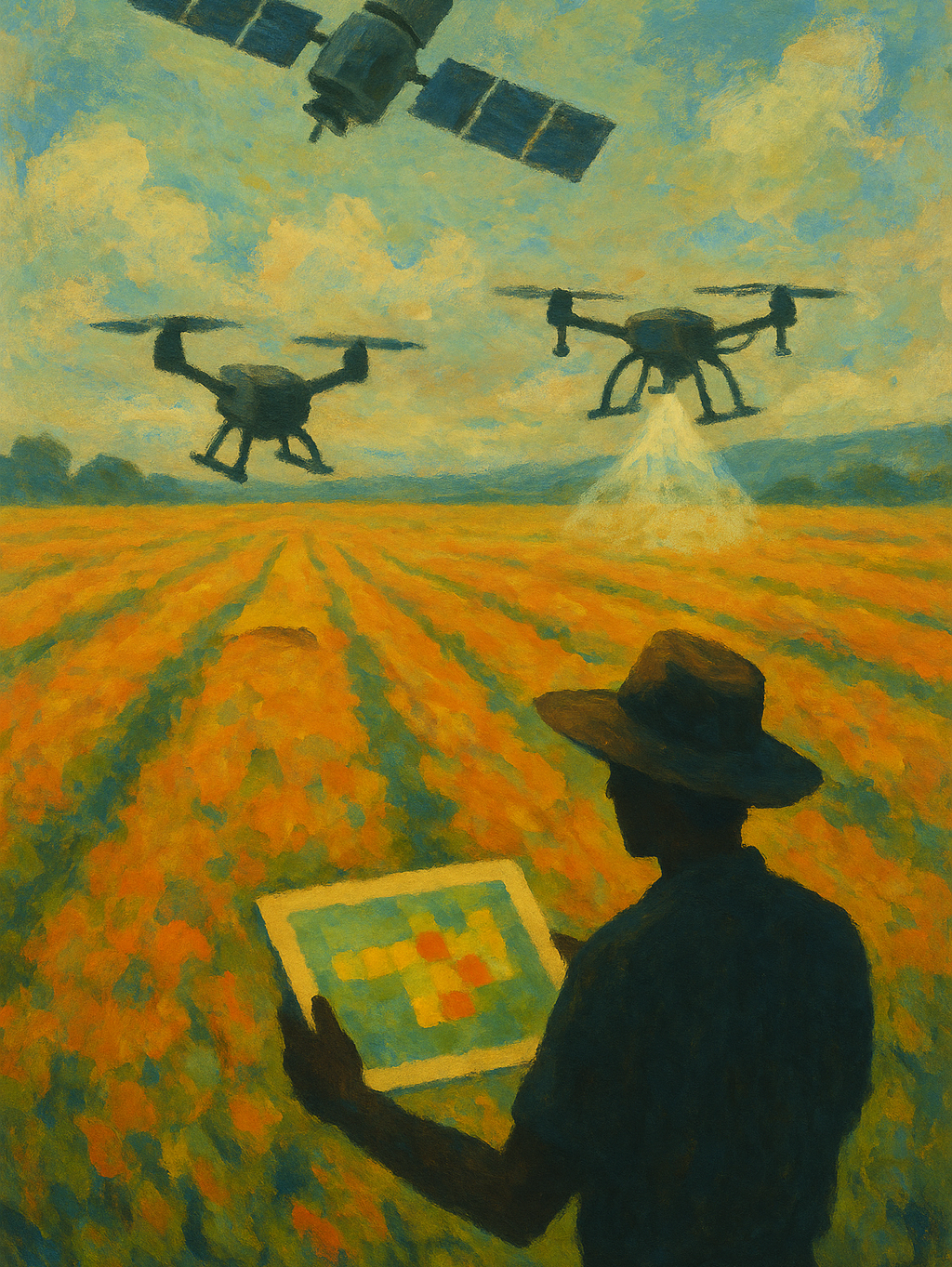TL;DR
Artificial General Intelligence (AGI) represents a significant leap beyond narrow AI, aiming to replicate and surpass human cognitive abilities across diverse domains. This ambition involves creating machines capable of reasoning, strategizing, and making autonomous decisions, a stark contrast to AI systems specialized in singular tasks. The foundation of AGI is built on advanced technologies like machine learning, particularly deep learning, and neural networks, drawing inspiration from the human brain to process complex data and emulate human thought processes.
Key Points:
AGI seeks to achieve a broad, adaptive intellect akin to human intelligence, capable of learning and applying knowledge in varied contexts.
Core technologies underpinning AGI include deep learning and neural networks, aiming to replicate human cognitive functions.
Philosophical and ethical considerations play a crucial role, raising questions about the rights, autonomy, and moral agency of AGI entities.
The potential impacts of AGI span across healthcare, education, and transportation, promising to revolutionize these sectors by offering personalized, efficient solutions and addressing global challenges like climate change. However, the journey towards AGI also presents societal challenges and risks, such as job displacement, privacy concerns, and ethical dilemmas regarding the treatment and rights of intelligent machines.
Navigating these complexities requires a robust, adaptive regulatory framework and international collaboration to ensure AGI's development aligns with human values and ethical standards. The path forward for AGI involves interdisciplinary collaboration and a societal approach that prioritizes ethical considerations, transparency, and accountability.
In conclusion, AGI stands at the frontier of technological advancement, holding the promise of significant benefits while posing profound challenges. The collective effort of the global community, guided by ethical foresight and collaboration, will be crucial in shaping a future where AGI enhances human life and addresses the pressing issues facing our world.
Introduction to AGI
AGI is distinguished from narrow AI, which excels in specific tasks, by its capacity to understand, learn, and apply knowledge across a wide array of disciplines, akin to human intellect. This evolution from narrow AI to AGI encapsulates the ambitious endeavor to not only replicate but also surpass human cognitive functions, paving the way for machines that can reason, strategize, and make decisions in an autonomous manner.
The journey towards AGI is intertwined with the historical progression of AI, marked by significant milestones and theoretical advancements that have laid the groundwork for contemporary AGI research. The inception of AI in the mid-20th century, fueled by the pioneering work of Alan Turing and others, set the stage for a future where machines could potentially mimic the human mind's intricacies. The subsequent decades witnessed a shift towards narrow AI, with systems designed to excel in specific tasks, from chess-playing computers to advanced diagnostic tools in medicine. Despite these advancements, the quest for AGI remained a distant goal, challenging researchers to bridge the gap between specialized intelligence and the adaptive, versatile intellect characteristic of humans.
Technical Foundations
The pursuit of AGI is anchored in several core technologies that form the backbone of modern AI research. Machine learning, particularly deep learning, has revolutionized the field by enabling systems to learn from vast datasets, identifying patterns and making predictions with increasing accuracy. Neural networks, inspired by the biological networks in the human brain, provide the structural framework for deep learning models, facilitating the processing of complex, multidimensional data. These technologies, combined with advancements in cognitive computing, strive to emulate human thought processes, enabling machines to reason, make judgments, and solve problems in a manner reminiscent of human cognition.
Yet, the path to AGI is fraught with challenges that extend beyond the capabilities of current technologies. The complexity of replicating human-like intelligence encompasses not only the technical aspects of AI development but also the integration of diverse cognitive functions into a cohesive system. Adaptability, a hallmark of human intelligence, remains a significant hurdle, as AGI systems must be able to learn and apply knowledge in novel, unpredictable scenarios. Moreover, scalability poses another challenge, as the computational demands of AGI systems escalate with the increasing sophistication and breadth of tasks they are designed to perform.
Philosophical and Ethical Considerations
The endeavor to create AGI is not merely a technical challenge but also a philosophical and ethical inquiry into the nature of intelligence, consciousness, and the moral responsibilities of creating entities with human-like intellect.
Philosophers and ethicists grapple with the implications of endowing machines with cognitive abilities that could rival or surpass our own, raising questions about the rights, autonomy, and moral agency of such entities. The potential for AGI to possess or simulate consciousness adds another layer of complexity, challenging our understanding of what it means to be intelligent and sentient.
Ethical considerations also come to the forefront, as the development of AGI entails responsibilities towards both the machines we create and the society that will interact with them. Issues of autonomy, accountability, and the alignment of AGI systems with human values and ethical standards are paramount, requiring careful deliberation and the establishment of robust ethical frameworks. As AGI systems become increasingly integrated into various aspects of human life, from healthcare to transportation, the ethical ramifications of their decisions, actions, and interactions with humans and the environment become increasingly significant.
AGI's Potential Impact
The transformative potential of AGI extends across numerous sectors, promising to revolutionize the way we live, work, and interact with technology. In healthcare, AGI could lead to breakthroughs in personalized medicine, enabling systems to diagnose and treat diseases with precision and efficiency surpassing human capabilities. Education could witness a paradigm shift with AGI-powered adaptive learning systems, providing personalized learning experiences that cater to the unique needs and learning styles of each student. Transportation, too, could see significant advancements, with AGI systems optimizing logistics, enhancing safety, and paving the way for fully autonomous vehicles.
Beyond these applications, AGI holds the potential to address some of the most pressing challenges facing humanity, from climate change to global health crises. By harnessing the power of AGI, we could develop innovative solutions to complex problems, leveraging the unparalleled analytical and problem-solving capabilities of these systems. However, the impact of AGI extends beyond technological advancements, encompassing economic, social, and cultural dimensions that will shape the future of human society.
Societal Challenges and Risks
The advent of AGI, while brimming with potential, also presents a good amount of challenges and risks that necessitate careful consideration and proactive management. The displacement of jobs due to automation and the increasing capabilities of AGI systems is a pressing concern, with implications for labor markets, income inequality, and social stability. Privacy concerns arise as AGI systems, capable of processing vast amounts of personal data, could lead to intrusive surveillance and erosion of individual privacy. Security threats, too, are a significant risk, as the integration of AGI into critical infrastructure and defense systems could make them targets for cyberattacks and exploitation.
Ethical and societal implications further complicate the landscape, as the development of AGI raises questions about the moral status of intelligent machines, their rights, and the ethical boundaries of creating entities with human-level intellect. The potential for AGI systems to make decisions that affect human lives underscores the importance of ensuring that these systems adhere to ethical principles and are aligned with human values.
Regulatory and Policy Frameworks
Navigating the complexities of AGI development and integration into society necessitates a robust and adaptive regulatory and policy framework. Current regulations surrounding AI may not be sufficient to address the unique challenges posed by AGI, requiring policymakers to devise new frameworks that foster innovation while safeguarding public interests. International collaboration is crucial in this endeavor, as the global implications of AGI transcend national boundaries, calling for a coordinated approach to governance, ethical standards, and safety protocols.
The Path Forward
Despite the significant progress in AI research, the realization of true AGI remains an elusive goal, marked by ongoing debates about the feasibility, timeline, and best approaches to achieving general intelligence in machines. The path forward involves not only technological advancements but also interdisciplinary collaboration, addressing the ethical, philosophical, and societal implications of AGI. Prominent projects and institutions across the globe are at the forefront of AGI research, pushing the boundaries of what is possible and paving the way for future breakthroughs.
Ethical and Societal Integration
The integration of AGI into society demands a careful and ethical approach, ensuring that these systems enhance human well-being and contribute positively to societal advancement. Strategies for integrating AGI must prioritize ethical considerations, transparency, and accountability, involving diverse stakeholders in the development and deployment processes. Public awareness, education, and engagement are essential in shaping the trajectory of AGI, fostering a societal framework that supports responsible and beneficial use of these transformative technologies.
Future Scenarios and Speculations
Speculating on the future of AGI yields a spectrum of scenarios, from utopian visions of a world enhanced by intelligent machines to cautionary tales of dystopian futures shaped by unchecked AI development. These speculative narratives serve as a valuable tool for exploring the potential impacts of
AGI, challenging us to consider both the opportunities and risks associated with this profound technological evolution. Utopian scenarios often paint a picture of AGI solving humanity's most intractable problems, driving unprecedented advancements in science, healthcare, and environmental sustainability. In these visions, AGI works alongside humans, augmenting our capabilities and enabling a society where resources are optimized, diseases are effectively managed, and learning is personalized and accessible to all.
Conversely, dystopian warnings caution against the potential for AGI to exacerbate social inequalities, undermine human autonomy, and pose existential risks. These scenarios highlight the importance of robust ethical frameworks, effective governance, and international cooperation to ensure that AGI development aligns with human values and serves the greater good. The control problem, or the challenge of aligning AGI's goals with human interests, epitomizes the ethical and technical dilemmas at the heart of AGI research, underscoring the need for interdisciplinary efforts to address these concerns.
Conclusion
The emergence of Artificial General Intelligence represents one of the most significant frontiers in human technological advancement, offering both unparalleled opportunities and profound challenges. As we navigate this complex landscape, the collective wisdom, ethical foresight, and collaborative spirit of the global community will be instrumental in shaping the trajectory of AGI. By fostering an inclusive dialogue that encompasses technologists, ethicists, policymakers, and the public, we can work towards a future where AGI enhances human life, addresses global challenges, and respects the ethical principles that underpin our society.
In conclusion, this serves additionally as a call to action for thoughtful, responsible engagement with one of the most transformative technologies of our time. The journey towards AGI will undoubtedly be marked by breakthroughs and setbacks, but the ultimate goal remains clear: to harness the power of general intelligence in service of humanity, ensuring that the benefits of AGI are widely shared and its risks diligently managed.









